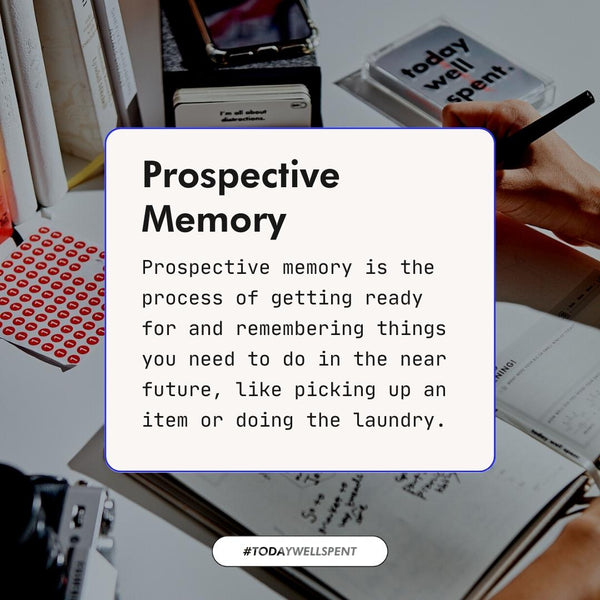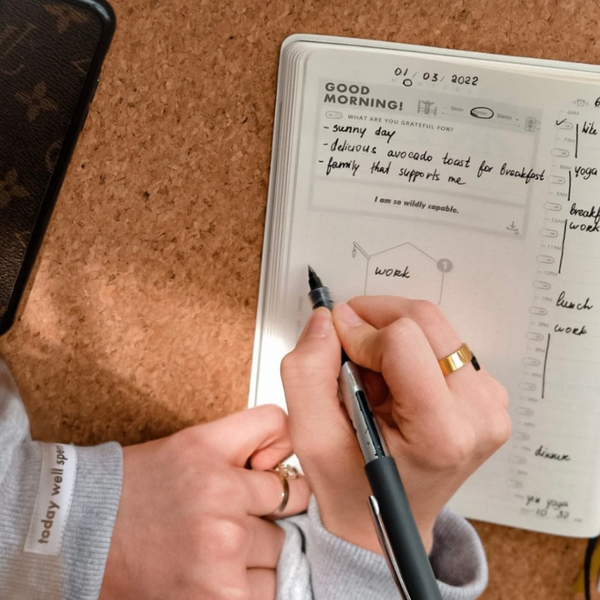The best way to improve your memory

Memory is a big part of how we make sense of the world. Our ability to process, learn, and internalize the lessons learned from past experiences is the basis for understanding the present and making decisions about the future. Needless to say, memory is essential. But we often find that unexpected "memory gaps" happen during important events or that some people just have better memories than others.
In addition to factors like genes and stress that influence our memory skills, there are many things in our daily lives that affect memory in ways that you don't even realize.
Long-term stress has a negative impact on memory
Chronic stress is a type of stress that lasts for a long time and makes it hard for your mind, body, and brain to relax.
When we are constantly under stress, our brains may not store information in "working memory" as well as they should. This can make it harder for us to remember what we have learned.
Working memory is a type of short-term memory that is used to temporarily hold information.
When the body is stressed for a long time, its natural defences can start to become destructive.
As stress increases, the brain chemical "glucocorticoids," which are part of the stress response, start to build up and intoxicate the brain. Under short-term stress, a small amount of this hormone can actually help the hippocampus work better. Too many glucocorticoids, on the other hand, damage the structure and function of the memory areas of the brain in a very bad way. This stops memories from being formed because hippocampal neurons can’t talk to each other [1].
Long-term exposure to chronic stress is also a common cause of mood changes, which can also be a factor in the development of depression.
Emotional distress can be detrimental to memory
Researchers have found that depression is linked to a decrease in the size of the hippocampus. People who are depressed have a smaller hippocampus, which may cause them to forget things or have other cognitive problems [2]. People who are depressed often also have trouble remembering things properly. These memory problems can include having a weak memory of good things that happened and a strong memory of bad things that happened, or just being able to remember the big picture of what happened but forgetting the details. Also, depression has been shown to hurt a person's prospective memory [3].

📌 Today Well Spent Tip:
Remembering happy times from the past can be a good way to deal with stress and depression in the present, making it easier to make decisions that are good for our health.
People who experience more happy emotions tend to have strong memories.
As we age, our memories start to get weaker. A study done at Northwestern University found that people who are happy and optimistic, or have what psychologists call "positive emotions," are less likely to lose their memories as they get older [4]. Positive emotions trigger the release of dopamine, which then goes to the prefrontal cortex (a major brain structure for working memory). As a result, working memory improves r [5].
How else can I improve my memory?
1. Cultivate pleasant feelings.
By making it a habit to think positively every day, you can change and strengthen the way your brain works. This can be done by doing more exercises that involve gratitude.
You can also cultivate more positive emotions by repeating positive self affirmations and aim to include more acts of kindness into your daily routine - no matter how small ;)
Start your morning routine by opening your Attn Journal and using the Mood Setting Section with gratitude exercises and daily self-affirmations. This will help you create positive brain pathways that will keep you going throughout the whole day!

2. Meditation
With age, the amount of "grey matter" in our brains also decreases, which affects the way our memories work. Research has shown that meditation can increase the amount of grey matter in the brain and lower the risk of mood disorders and cognitive decline that come with getting older [6].
Gray matter is the part of the brain that is in charge of processing information and can respond to a wide range of outside stimuli.
3. Eat foods that improve mood & memory.
- Fatty fish with high fat and high omega-3 fatty acid. Such as salmon, trout, albacore tuna, herring, and sardines.
- Berries that are high in antioxidants, phytonutrients, fiber, vitamins, and minerals. Such as strawberries, blueberries, blackberries.
Use the meal planner in the Self-Care section of the Attn Journal to plan and keep track of your daily food intake. This will help you eat your way to a better mood and stronger memories!
4. Get better sleep!
Not only can sleep help you feel better emotionally, but it can also help you improve your memory. During sleep, the brain keeps on working, processing, storing, and organizing the new information it has learned during the day. This is how long-term memories are made.
This is why getting a good night's sleep is very essential for a person's memory and helps improve their overall cognitive performance.
5. Do mental exercises
The more mental effort you put in, the better your mental performance will be. You can improve your memory by practising with any activity that requires you to remember words or the order in which things appear. Playing a game of such sort instead of scrolling on social media for just 10 minutes a day can help your memory work better!
-
Research & References
[1] Azab, M. PhD. Is stress bad or good for memory?, 2020. https://www.psychologytoday.com/us/blog/neuroscience-in-everyday-life/201812/is-stress-bad-or-good-memory
[2] Sapolsky RM. Depression, antidepressants, and the shrinking hippocampus. Proc Natl Acad Sci U S A. 2001 Oct 23;98(22):12320-2. doi: 10.1073/pnas.231475998.
[3] Nicole Wetsman. Depression’s Impact on Memory, BrainFacts/SfN, 2019.https://www.brainfacts.org/diseases-and-disorders/mental-health/2019/depressions-impact-on-memory-022119
[4] Hittner EF, Stephens JE, Turiano NA, Gerstorf D, Lachman ME, Haase CM. Positive Affect Is Associated With Less Memory Decline: Evidence From a 9-Year Longitudinal Study. Psychol Sci. 2020 Nov;31(11):1386-1395. doi: 10.1177/0956797620953883. Epub 2020 Oct 22.
[5] Ashby, F. G., Isen, A. M., & Turken, A. U. (1999). A neuropsychological theory of positive affect and its influence on cognition. Psychological Review, 106(3), 529–550. https://doi.org/10.1037/0033-295X.106.3.529
[6] Tang R, Friston KJ, Tang YY. Brief Mindfulness Meditation Induces Gray Matter Changes in a Brain Hub. Neural Plast. 2020 Nov 16;2020:8830005. doi: 10.1155/2020/8830005.





Leave a comment